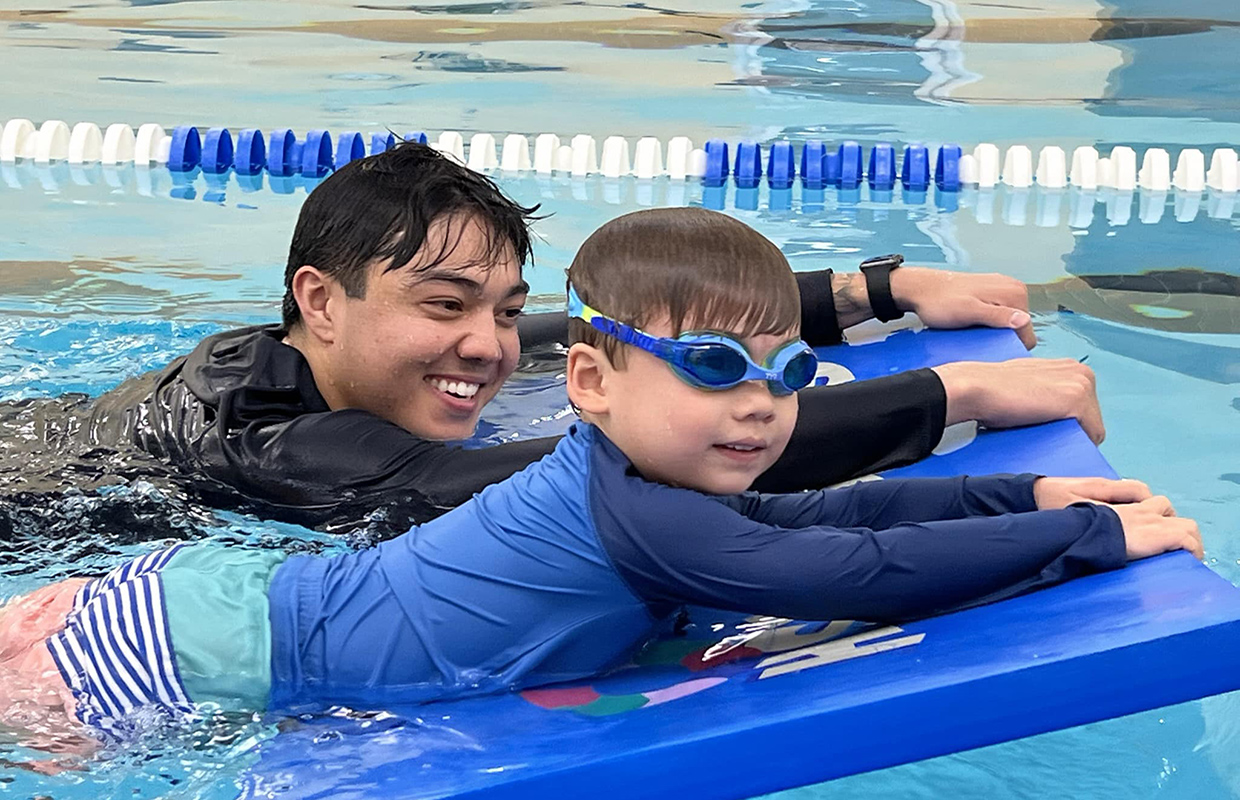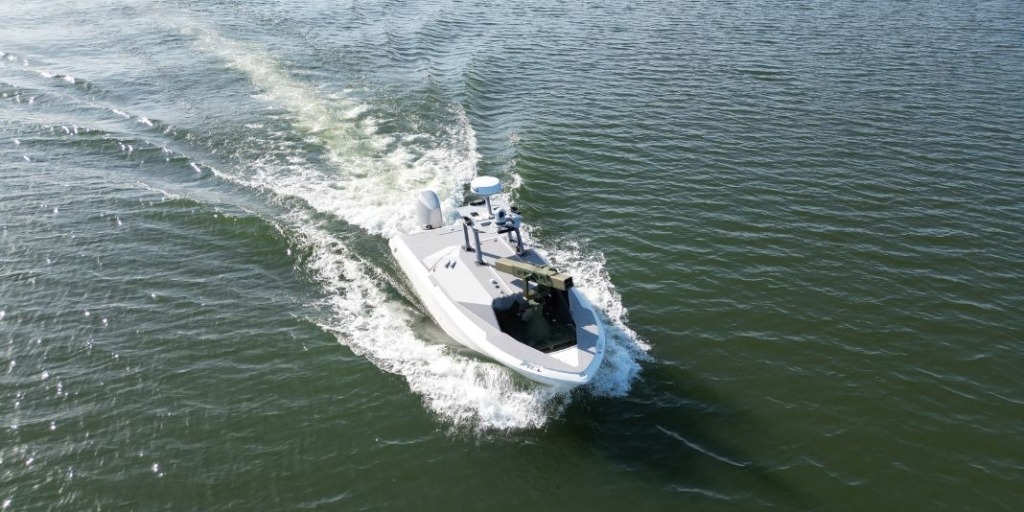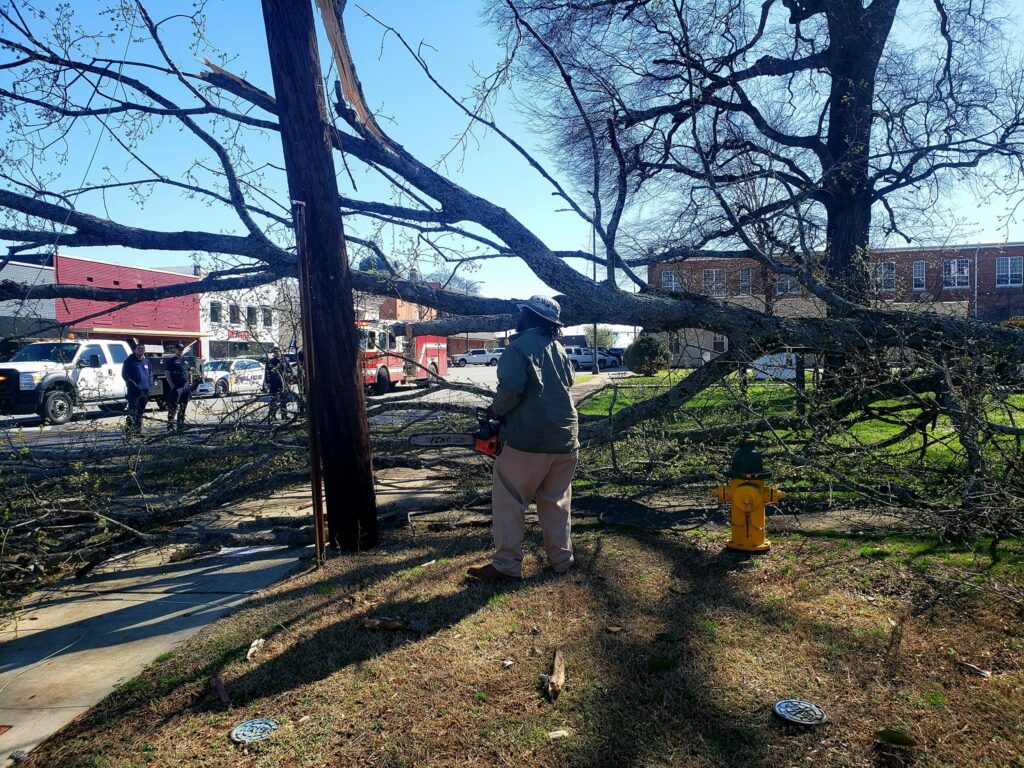HUNTSVILLE – In North Alabama, we are surrounded by water from the Tennessee River – just a stone’s throw from city center to public, community and private swimming pools made popular by long, hot, sultry summers.
While indoor swim season is active all year, outdoor swimming pools will open across the city around April 1.
Do you really know how to swim?
According to Alabama Public Health statistics from 2010-2019, there is an average of almost 4,000 unintentional, non-boating related drowning deaths per year; and among children ages 1-year to 14, drowning is the second leading cause of unintentional injury death after motor vehicle crashes.
Kristin Stitt’s daughter is a member of the award-winning swim team at the Alabama School of Cyber Technology and Engineering in Huntsville.
During the pandemic, while most sports came to a screeching halt, swimming continued. The Huntsville Aquatics Center was big enough they were able to structure practices so they met distancing requirements. That along with the chlorine fairly ensured swimming to be an unlikely source for spreading the virus.
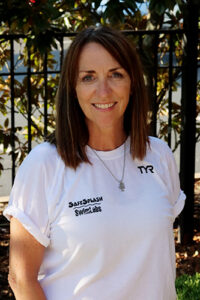
“After COVID, I did not want to go back on the road with my other job so we did a gap analysis of Madison County and discovered there was a gap in the need for structured swim lessons,” said Stitt who is now managing partner and vice president of Operations for her dual franchises, SafeSplash Swim School for all ages and ability; and SwimLabs Swim School, a skills-based swim lessons program.
She said she chose SafeSplash because of its unique curriculum created by coaches, Olympians, collegiate coaches and swimmers.
“Learning to swim is a life skill,” Stitt said. “Everyone needs to know how to swim, and learning is multigenerational.”
Stitt is finalizing the purchase of land at County Line and Gillespie roads for a flagship facility with a pool. They have plans for a SafeSplash in Owens Cross Roads and eventually one in Harvest.
SafeSplash isn’t waiting though. The company began teaching swim classes at The Ledges last June. That program, she said, can be taken into any community with a swimming pool.
In July, Stitt hired Dylan Eichberg as vice president of Aquatic Operations, and he moved to Huntsville from Washington, D.C.
SafeSplash is operating at Huntsville Hospital Wellness Centers at Madison Hospital and in Jones Valley. They are open six days a week, Monday through Saturday. Classes are 30 minutes, once week.
“Since it will be about a year before our pool is finished, we spent this time strategizing an on-ramp for it and it has given us time to put together a topnotch operation,” said Stitt.
That includes scheduling, training, hiring instructors, and creating a call center. They currently have 10 employees.
She said SafeSplash operates a turnkey service with professionally trained and orchestrated swim lesson programs.
There are three basic types of adults who do not know how to swim, Stitt said: those who have never learned to swim because of a fear of water; those who will get into the water, but are uncomfortable and limited in what they will do; and those who, for whatever reason, never had the opportunity to learn how to swim.
“SafeSplash breaks down those barriers,” Eichberg said. “When people get scared in the water, the body gets very rigid to the point that not one muscle is relaxed and that causes people to sink.
“We see it with seven- and eight-year-olds and it is a multistep process to get them to relax.”
Furthermore, there is a misconception that if you know how to swim, you won’t drown.
Children especially, have been known to drown in a bucket of water, in bathtubs, hot tubs and spas, natural bodies of water such as ponds, and standing water in homes.
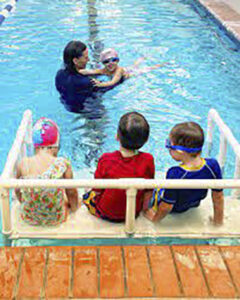
“Anyone can drown and that is why part of our goal, our mission statement at SafeSplash is that for swimming to thrive in Madison County, lifelong water safety must be paramount,” said Stitt. “SafeSplash focuses on teaching people to swim correctly and confidently.”
SafeSplash lessons start at six months old and there is no adult age limit.
Classes are divided into several levels of ability starting with three adult beginner and three adult intermediate levels; private lessons; competitive level classes to help students swim better, faster; and adaptive aquatics for folks with special needs.
“Our adaptive permit is very personalized for anyone on the autism spectrum, muscular dystrophy or Down syndrome for instance,” said Eichberg. “Most special needs people love the water; they are drawn to it, and they love being under the water because it is quiet.”
He said they have enhanced the adaptive curriculum to three levels over the last year because they recognized the need to make the adaptive classes more specific.
Eichberg is also taking the lead on SwimLabs.
“SwimLabs is skilled-based and gives competitive swimmers a cutting edge,” he said.
It features some technological aspects that are rare in swimming, Eichberg said.
SwimLabs, which will operate out of SafeSplash facilities, features state-of-the-art swim tanks so swimmers can practice swimming against a current, instant video analysis, and mirrors at the bottom of every pool – the same tools used by Olympic swimmers.
It is perfect for competitive swimmers and triathletes that want to perfect their technique to swim faster, said Eichberg.
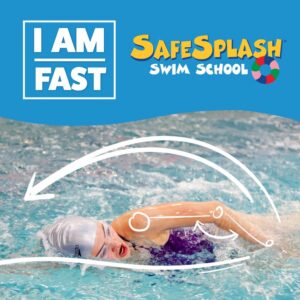
SafeSplash has also partnered with D&D Lifesaving for students on the high end of the ability spectrum, interested in deep water lifesaving as well.
Swimming is great exercise, a fat-burning activity in which people use every muscle. It is easy on the joints compared to running, and safer compared to some sports where concussions are an issue.
“Swimming incorporates everything including health and wellness, psychological, mental and emotional wellness as well,” said Stitt.


